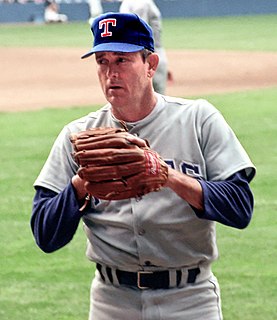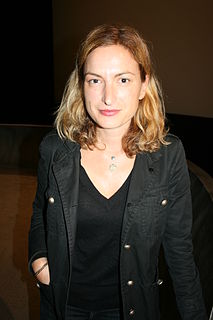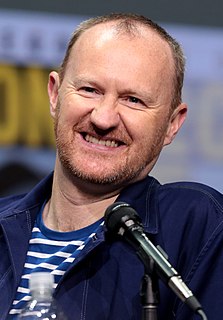A Quote by Nolan Ryan
When I had dyslexia, they didn't diagnose it as that. It was frustrating and embarrassing. I could tell you a lot of horror stories about what you feel like on the inside.
Quote Topics
Related Quotes
I'm very grateful to be in a position now where I have a lot more control to tell the stories I want to tell. I feel no obligation to tell any one story. I will tell you my interest mostly lies in telling stories about empowered women, but I don't feel it's an obligation. But I do feel like I am servicing a voice.
I thought I could capture the stories of the city on paper. I thought I could write about the horrors of the city. Horror stories you see. I tell you I didn't have to look far for material. Everywhere I looked, there were stories hidden there in the dark corners. . . . I wrote and still there were more. . . . No one would publish them. 'Too horrible,' they said. 'Sick mind,' they said. I thought I could write about the horrors of the city but the horror is too big and it goes on forever.
My actress friends would tell me their horror stories, or say they couldn't get work, and were deemed too old, even though they were established and talented and fit and gorgeous. It was frustrating for them and it was frustrating to hear. Maybe because I was the same age as them and it was already hard enough trying to cross over to the 40s without someone judging your every move.
I would like to be known for honest, relatable writing and stories that that are real. There's just this shift I think is happening in a lot of society right now where being your most real self, however embarrassing or vulnerable or weird that is, is the coolest. I feel like that's what Lena Dunham's about and Amy Schumer's about.
Are people drawn to each other because of the stories they carry inside? At the library I couldn’t help but notice which patrons checked out the same books. They appeared to have nothing in common, but who could tell what a person was truly made of? The unknown, the riddle, the deepest truth. I noticed them all: the ones who’d lost their way, the ones who’d lived their lives in ashes, the ones who had to prove themselves, the ones who, like me, had lost the ability to feel.
AS SOMBRAS DA ALMA. THE SHADOWS OF THE SOUL. The stories others tell about you and the stories you tell about yourself: which come closer to the truth? Is it so clear that they are your own? Is one an authority on oneself? But that isn't the question that concerns me. The real question is: In such stories, is there really a difference between true and false? In stories about the outside, surely. But when we set out to understand someone on the inside? Is that a trip that ever comes to an end? Is the soul a place of facts? Or are the alleged facts only the deceptive shadows of our stories?
You know when you're hungry and excited and you feel humble about it? I like that. In the past, when things were not clear, I think I wasn't ... I didn't have my feet on the ground as much, maybe, 10 years ago. So I just feel like this is a good place to be now, to feel that you want to tell stories from this place and that you're excited to tell stories from this place because you know what you love. I know what I love right now.
[Robert] Aikman would write horror stories that weren't gore, they weren't slashers, and they weren't monster stories either. He called them ghost stories. The main thing about them was the vibe. It was really disquieting. He wanted to sketch the scene so that you could see it and know the characters and get a feel for the motion - and then ask yourself why and not get a final answer. Leave something that itches. I loved that!






































